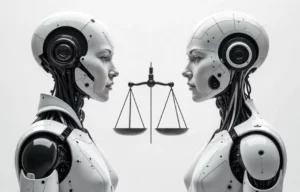

AI ethics, governance, and compliance are commanding center stage as the global AI landscape evolves rapidly. Key developments—including OpenAI’s recommitment to nonprofit status, mounting legal scrutiny over AI training data, and growing AI applications in sectors like healthcare and law—are sparking crucial conversations around responsible innovation. These shifts underscore the urgent need for clear regulatory frameworks and ethical guidelines to ensure AI is developed and deployed responsibly.
OpenAI has decided to maintain its nonprofit status following criticism and a lawsuit from co-founder Elon Musk. This move highlights the ongoing debate over the ethical direction of AI development. [Financial Times]
Authors, including Richard Kadrey and Sarah Silverman, have filed a lawsuit against Meta, alleging unauthorized use of their works to train its Llama AI model. The outcome could set significant precedents for AI and copyright law.
A 63-year-old woman credits AI for the early detection of her lung cancer, emphasizing the technology’s potential in healthcare diagnostics and the ethical considerations of its use. [People.com]
Australian law firm Minter Ellison’s use of AI for document review has sparked discussions about the ethical implications of AI replacing junior lawyer roles. [theaustralian]
A digitally created image depicting President Trump as the pope has been labeled as inappropriate by Cardinal Timothy Dolan, highlighting concerns over AI-generated content and respect for religious sentiments. [Reuters]
The ongoing surge in AI development is bringing ethical, legal, and societal questions to the forefront. From legal disputes over training data to transformative impacts in healthcare and law, these stories highlight the pressing need for robust frameworks that promote transparency, fairness, and accountability. Staying informed and engaged in these discussions is essential to shaping a future where AI serves the public good.
WEBINAR